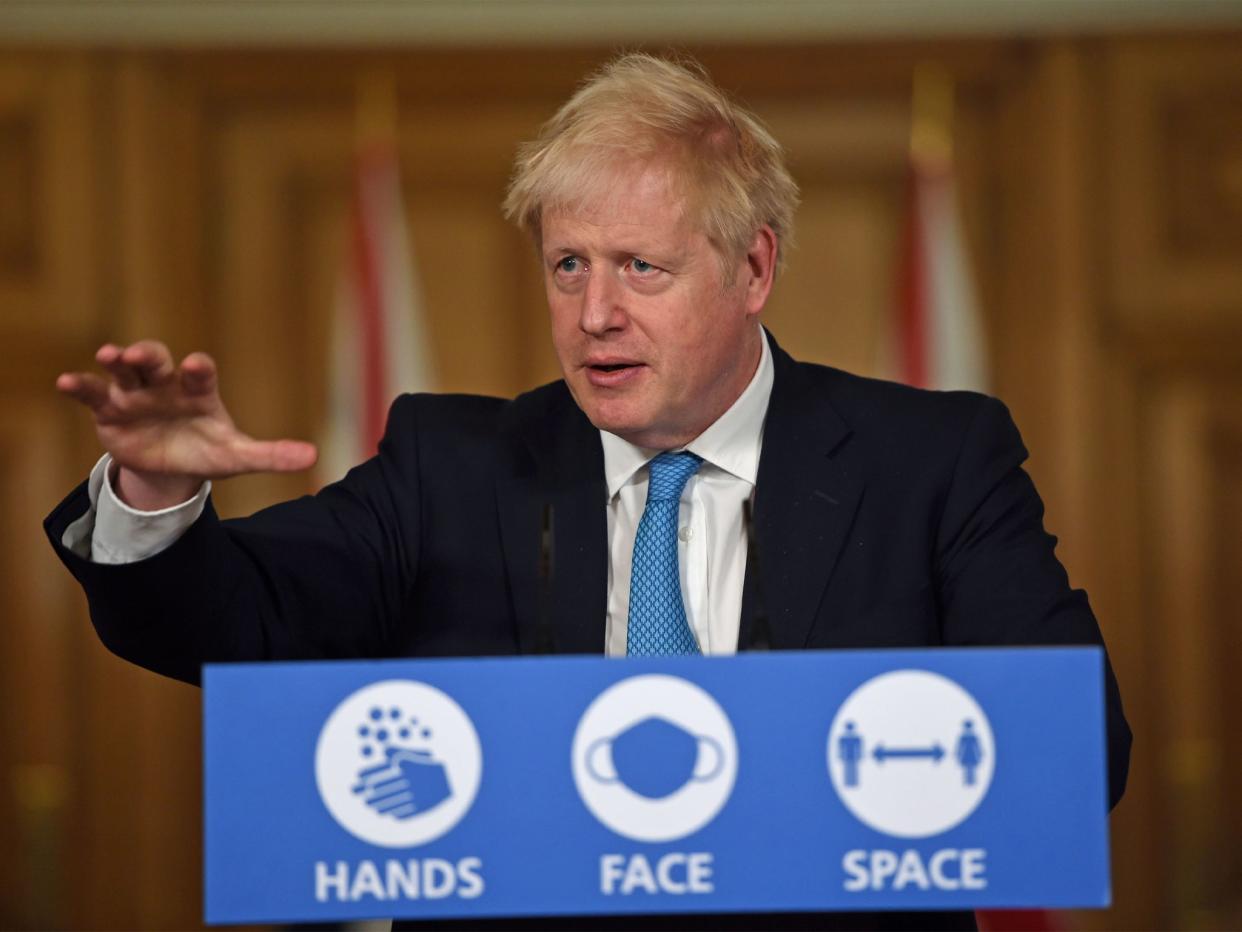Boris Johnson has taken a political hit over the Manchester stand-off – whatever his ministers say

The government appears to be inching towards agreement with local leaders in Greater Manchester for the region to accept further coronavirus restrictions in return for financial help.
Although the war of words between Andy Burnham, the mayor, and ministers continued on the Sunday TV political programmes, talks afterwards were more conciliatory. Today Burnham insisted he will not “roll over at the sight of a cheque”. But the temperature was noticeably lower in this morning’s media interviews, with both sides speaking of constructive discussions. Ministers hint that tomorrow is their final deadline.
The ice started to melt when Rishi Sunak, the chancellor, signalled he did not want to be the roadblock to a deal under which the area would enter Tier 3, the highest level of restrictions. Sunak will not accept Burnham’s demand for workers who lose their jobs when their employer is forced to closed to receive 80 per cent of their wages.
He is sticking to his 67 per cent offer, knowing that if he conceded, the cost of his scheme would spiral as other Tier 3 demanded equal treatment. But Sunak will give local authorities in Greater Manchester a package worth tens of millions, to compensate business and allow them to take on more contact tracing, in line with that handed to the Liverpool city region.
Boris Johnson has warned he will impose Tier 3 status on Greater Manchester on public health grounds if necessary. But Burnham’s trump card is that he knows Johnson does not want to do this, as it would fuel the toxic narrative of a London-centric government enforcing its will on the north.
The irony is that Johnson won his huge majority last December partly because he promised to put right years of neglect of the north by successive governments and local Labour politicians. The 2016 vote for Brexit, too, was a vote against Westminster as well as Brussels. The north west, north east and Yorkshire and Humberside voted Leave by more than the 52 per cent national average.
Burnham has finally found his niche in politics. Seen as a rising star during the Blair-Brown era, he was the front-runner to win Labour’s 2015 leadership election after lining up trade union support. But his reputation for flip-flopping returned to haunt him: he did not oppose the Tory government’s welfare cuts, handing Jeremy Corbyn an open goal he did not miss.
Burnham has now found his voice as the figurehead for the north, standing up for his people against London, just as Nicola Sturgeon does. He raised the stakes by becoming a standard-bearer for all the areas who will go into Tier 3. Although the north east has probably won a week’s reprieve, South Yorkshire, West Yorkshire and Nottingham are expected to join the top level.
Today it is Johnson who now looks like the flip-flopper who changes the Covid-19 rules as he scrabbles around for a strategy. Burnham has clearly got under ministers’ skins. They expected him to swallow Tier 3 status as Liverpool and Lancashire did, yet he refuses to be “pressurised”. Ministers accused him of “playing party politics” and “posturing” but that didn’t wash.
Some Tory MPs in the north, including Graham Brady, influential chair of the 1922 committee, backed Burnham’s claim that the evidence for further curbs had not been produced. There was an embarrassing spat after five of Greater Manchester’s nine Tory MPs and 20 Tories representing areas in Tier 1 criticised Burnham in letters that seemed to be inspired by the government. Other Tories hit back, accusing their colleagues of toadying.
One by-product of the dispute is that it has encouraged Tory MPs in the former red wall of Labour seats to become more independent-minded. They recently formed the Northern Research Group, a deliberate echo of the European Research Group of hardline Brexiteers who made Theresa May’s life a misery. They point out that the 80 Tory MPs in the north are the equivalent of Johnson’s Commons majority. They already saw themselves as champions for their constituencies rather than robots controlled by government whips. They need to deliver for their areas, many of which had not elected a Tory MP for decades, or ever in some cases.
Johnson’s problem is that his much-trumpeted “levelling up” agenda looks like it has gone into reverse in the pandemic, with potentially huge implications for the next election. If Johnson acquires the “same old Tories” label dating back to the Thatcher area, voters might return to the Labour fold.
Even if the stand-off is resolved, some damage will have been done - politically to Johnson and, more immediately, on the ground. There are growing signs from opinion polls and focus groups that people, confused by and fed up with constantly-changing rules, are deciding their DIY version, weakening the fight against the virus.
Read more
PM faces having to impose tier 3 restrictions on Greater Manchester
Most British adults clueless about covid restrictions, poll finds
Will new coronavirus restrictions lead to a double-dip recession?
Coronavirus cases hit 40m worldwide as infections accelerate


